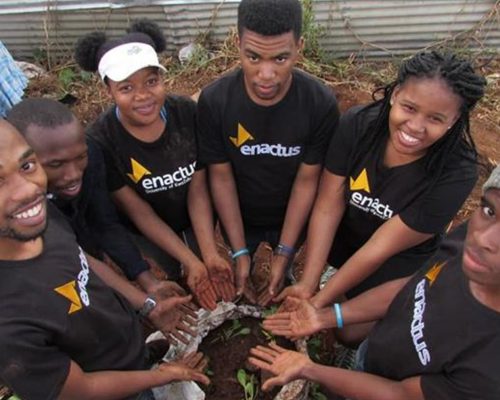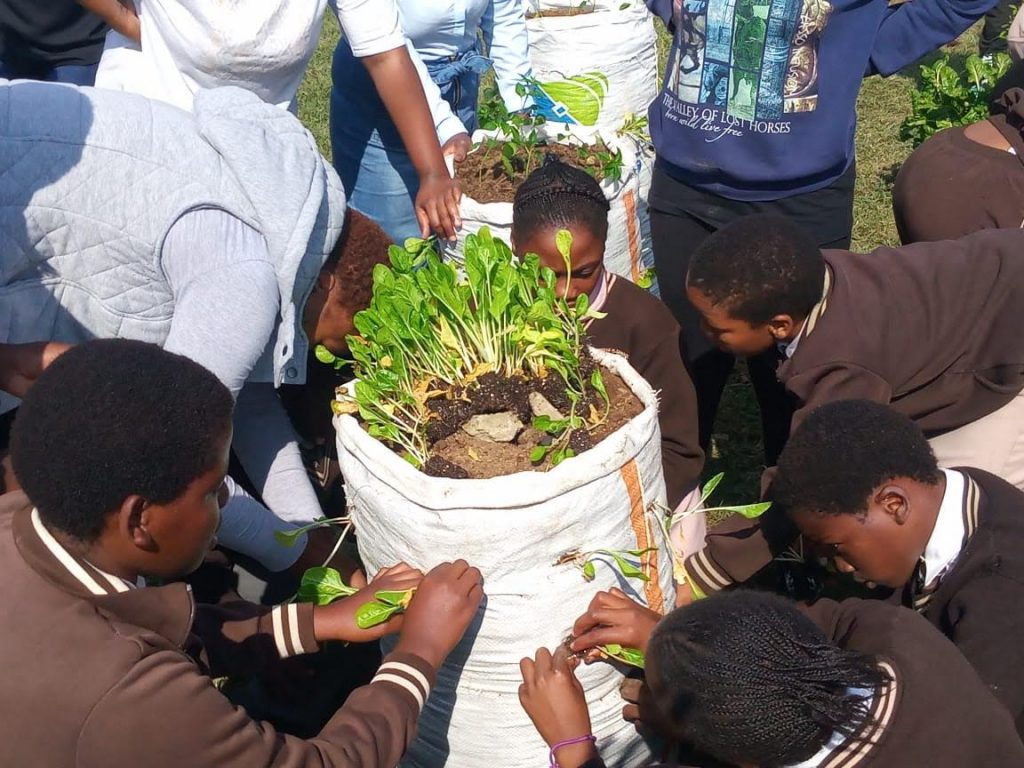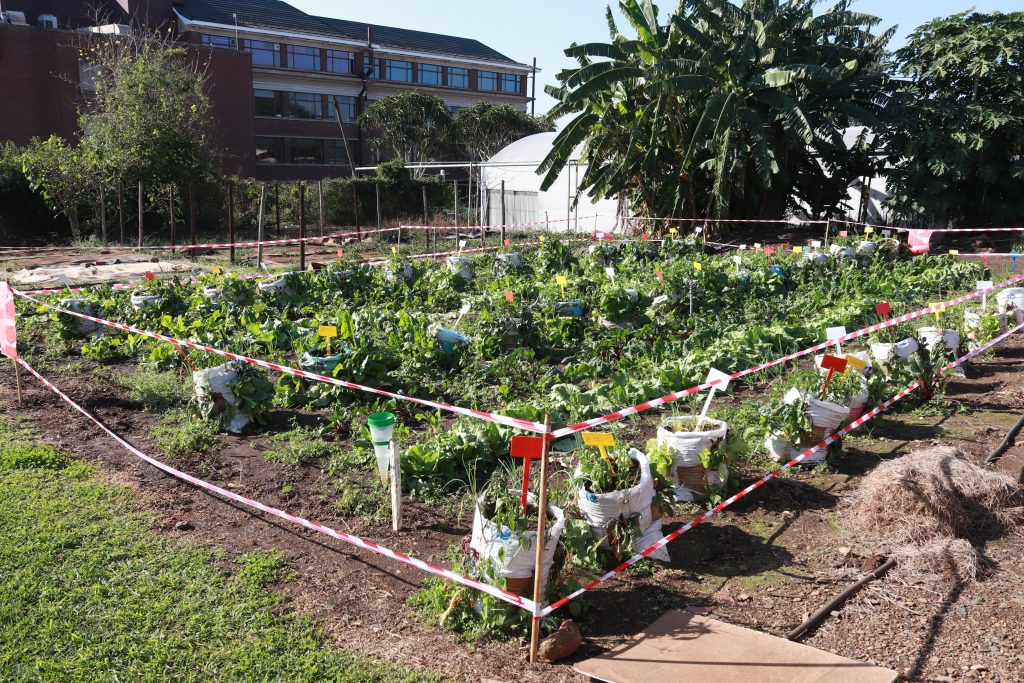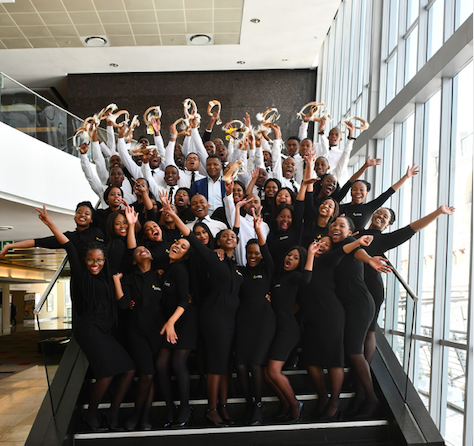The context
South Africa is known for its large fields, fertile soils and numerous available lands. However, the country is urbanising under the effect of a significant rural exodus. In the hope of finding work, inhabitants of large farms move to peri-urban areas and city centers. In Durban, the urban population growth is very strong : + 6,8% between 2007 and 2016 and now reaches around 3,7 millions habitants (2016 data).
In cities but also in the townships where the poorest population live, often of rural origin, south africans no longer have access to land for farming. The lack of land or the small spaces available to them do not allow them to plant their own food to meet their needs or to grow their vegetables for leisure. People are moving away from agricultural practices. At the sametime, they have difficulty obtaining work in the city and are sometimes in a situation of food insecurity. Social inequalities are growing in cities and social assistance does not allow families to live decently.
Faced with this situation, members of the Enactus network at the University of Kwazulu-Natal took action, notably by creating the “SackSpace” project.
The network “Enactus UKZN” founded in 2003 in the University of Kwazulu-Natal (Durban province) brings together students, professors and economic actors with the aim of encouraging social entrepreneurship among young people and supporting local communities. Bringing together nearly 200 students on four different campuses (Edgewood, Howard College, Pietermaritzburg and Westville), Enactus UKZN carries out projects related to sustainable development, education, agriculture and tourism.

The project
The "SackSpace" project: vegetable bags to produce in an urban environment.
Students from the Enactus UKZN network mobilized in the face of food insecurity issues and the socio-economic difficulties of local communities, by setting up sustainable agriculture projects for local rural and urban communities. The "SackSpace" project is one of them.
They offer an innovative system of vegetable bags that allows edible plants to be grown vertically in very limited spaces, without workload and saving water (almost 60% less water compared to conventional agriculture) .
The bags weigh between 45 to 50 kg, they are filled with soil and integrate a tunnel of pebbles in the center. Each bag contains between 25 and 30 seeds of a wide variety of plants including spinach, beets, lettuce, onions, carrots, potatoes, herbs etc.
It is possible to combine different plants in the same bag, which ultimately results in a variety of foods for balanced and nutritious dishes.
Enactus UKZN collaborates with several communities for its vegetable bag project and adapts the model to the specificities of the communities. Workshops are given to teach beneficiaries how to cultivate in vegetable bags. The method is suitable for older and younger people who can learn to cultivate in vegetable bags thanks to Enactus UKZN interventions in primary schools.

This project allows urban dwellers to cultivate plants and grow their own food in the small spaces they have and achieve high yields. This project has a positive impact on the country's food security and allows families to save money or even generate a small income if they sell the products they have grown. Vegetables are now sold informally, especially among neighbors, but the ultimate idea is to integrate these sales into the commercial market to create a real local business based on social entrepreneurship. This project brings hope to poor and precarious populations to be able to live less modestly by embarking on a social and ecological project.

An ongoing vermicompost project
A vermicomposter project is being developed by the students of Enactus UKZN.
Vermicompost is a project that aims to teach farmers and retailers how to recycle their organic matter to produce compost. The aim is to reduce greenhouse gas emissions, such as CO2, emitted in landfill sites by recycling organic waste and turning it into a real resource.
The compost produced will then be sold in markets identified by the students. The project will be led by Enactus UKZN but employees will be responsible for collecting organic matter from farmers and producing compost. This will thus promote employment and perpetuate the initiative.
The little extra

Enactus is a global network that brings together students, professors and economic actors with the aim of fostering social entrepreneurship and supporting communities. The network is present in 36 countries and in more than 1,730 universities, bringing together nearly 72,000 students.
Enactus also exists in France: https://enactus.fr
Cette fiche initiative a été rédigée par Apolline Beyris-Duvignau (étudiante à Bordeaux Sciences Agro) et Adèle Guen, volontaire LFC - décembre 2020.
Last modification : 29 Jan 2021.
ENACTUS
Enactus is a network of students and teachers which aims at encouraging social entrepreneurship among youths. On the campuses of Kwazulu-natal university, different groups of students are involved in the implementation of sustainable agriculture projects in the rural and urban communities. The “sackspace” project especially enables rural communities to produce vegetables all year round in a limited space, by producing in bags.